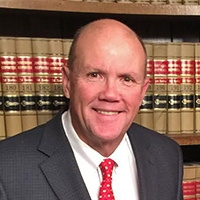Coffee Springs Felony Lawyer, Alabama
Not enough matches for Coffee Springs Felony lawyer.
Below are all Coffee Springs Criminal lawyers.
William B. Matthews
✓ VERIFIEDDivorce & Family Law, Criminal, Accident & Injury, Business, Estate
William Matthews, Jr. is a practicing lawyer in the state of Alabama specializing in Divorce & Family Law; Criminal; Accident & Injury; Bankruptcy & D... (more)
James Mccollum Parker
Divorce, Construction, Americans with Disabilities Act , Felony
Status: In Good Standing Licensed: 33 Years
Alyse Phillips Fowler
Criminal, Divorce & Family Law, Estate, Child Custody
Status: In Good Standing Licensed: 7 Years
Charles Jackson Fleming
Lawsuit & Dispute, Employment, Divorce & Family Law, Criminal
Status: In Good Standing Licensed: 53 Years
Jeffery Dewayne Hatcher
Traffic, Wills & Probate, Child Custody, Criminal
Status: In Good Standing Licensed: 23 Years
Amanda Mock Smith
Government, Divorce & Family Law, Criminal, Bankruptcy & Debt
Status: Inactive Licensed: 18 Years
Charles W Blakeney
Social Security, Trusts, Divorce & Family Law, Criminal
Status: In Good Standing Licensed: 33 Years


